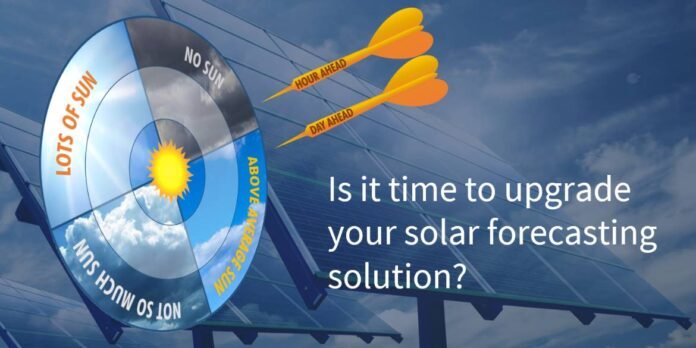Last Updated on July 9, 2023 by
Solar energy has emerged as a pivotal solution in the pursuit of sustainable and clean power sources. With the world’s growing energy demands and increasing environmental concerns, solar forecasts play a crucial role in shaping the future of renewable energy utilisation. These forecasts, based on advanced technological models and data analysis, provide valuable insights that carry significant implications for various stakeholders. In this article, we explore the implications of solar forecasts and their potential to revolutionise the global energy landscape.
Table of Contents
1.Grid Management and Stability
One of the most profound implications of solar forecasts lies in their ability to enhance grid management and stability. Solar energy generation is highly dependent on weather conditions, and accurate forecasts enable grid operators to anticipate fluctuations in supply and demand. By integrating solar forecasts into their planning processes, grid operators can efficiently balance the grid and minimise the need for backup power sources, thus optimising energy distribution and ensuring a stable power supply.
2.Cost Optimization
Solar forecasts also have a direct impact on cost optimization in the renewable energy sector. The ability to predict solar energy generation allows utilities and power companies to plan their operations more effectively, aligning energy production with peak demand periods. As a result, excess energy production can be avoided, reducing wastage and financial inefficiencies. Moreover, this knowledge empowers businesses and consumers to make informed decisions about energy consumption, leading to potential savings on electricity bills and incentivizing a broader adoption of solar energy solutions.
3.Integration of Energy Storage
Solar forecasts facilitate the integration of energy storage technologies into the power grid. By accurately predicting solar generation patterns, grid operators can optimise the deployment of energy storage systems, such as batteries, to store excess energy during sunny periods and discharge it during periods of low or no solar generation. This not only enhances grid flexibility and stability but also unlocks the full potential of solar energy by overcoming the intermittent nature of sunlight.
4.Climate Resilience and Adaptation
In the face of climate change and its accompanying extreme weather events, solar forecasts assume a critical role in enhancing climate resilience and adaptation strategies. By providing early warnings about potential solar energy variations due to weather fluctuations, businesses and governments can better prepare for energy disruptions and mitigate potential risks. Additionally, such forecasts can aid disaster management efforts by offering insights into energy availability during emergency situations.
5.Policy and Investment Decisions
Governments and policymakers heavily rely on solar forecasts when formulating renewable energy policies and making investment decisions. Accurate solar predictions assist in estimating the long-term potential of solar energy in specific regions, thereby guiding the implementation of subsidies, incentives, and regulatory frameworks that promote solar energy adoption. Furthermore, these forecasts are instrumental in attracting private investments into solar infrastructure projects, fostering the growth of the renewable energy sector.
Apart from that, if you are interested to know about Energy Storage System for Batteries then visit our Technology category.






















